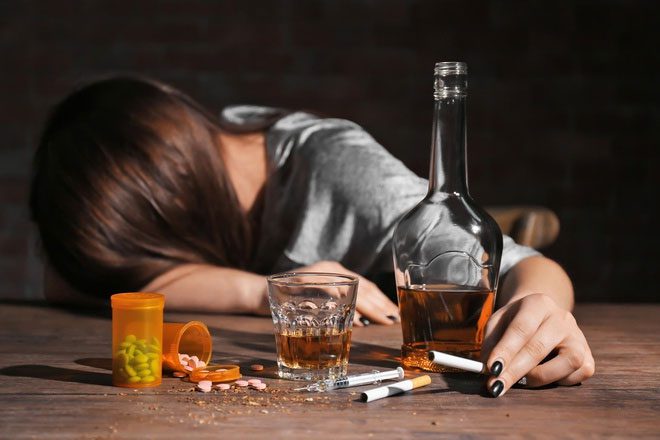Experts in the U.S. find that individuals with substance use disorders face a higher risk of contracting Covid-19 after vaccination.
This announcement comes from the National Institutes of Health (NIH) following an analysis of 580,000 health records of individuals who received both doses of the Covid-19 vaccine.
The study, published in the journal World Psychiatry, was conducted by a team from the National Institute on Drug Abuse (NIDA), part of the NIH, in collaboration with Case Western Reserve University (Cleveland, Ohio).
Increased Risk of Covid-19, Hospitalization, and Death
The research focused on vaccinated individuals from December 1, 2020, to August 14, 2021, analyzing three groups: individuals with substance use disorders (addiction), substance abusers, and individuals who had not contracted Covid-19 prior to vaccination.
The study identified the rate of Covid-19 cases occurring at least 14 days after the final vaccine dose. When evaluating substance abusers, experts also accounted for demographic and socioeconomic factors (housing instability, employment), as well as chronic conditions (high blood pressure, cardiovascular issues, obesity, diabetes).
From this, the study found that 7% of individuals with substance use disorders contracted Covid-19 despite being vaccinated, compared to 3.6% in the general population. Additionally, the risk of contracting Covid-19 post-vaccination varied among different substance abuse groups: smokers (6.8%), marijuana users (7.8%).

Research from the National Institute on Drug Abuse (NIDA) indicates that individuals with substance use disorders have a higher risk of contracting Covid-19 after vaccination. (Photo: Freepik).
When chronic conditions and adverse socioeconomic factors were controlled, the rate of breakthrough infections decreased. However, marijuana users still faced a 55% higher risk of contracting Covid-19 post-vaccination compared to other groups. The researchers hypothesized that marijuana has the most detrimental impact on immune function and lung health, thereby increasing the risk of contracting Covid-19 after vaccination.
Individuals with substance use disorders also exhibited a higher likelihood of severe outcomes when contracting Covid-19 post-vaccination. Among this group, 22.5% required hospitalization, and 1.7% died. The corresponding rates for individuals with substance use disorders who did not contract Covid-19 were 1.6% and 0.5%, respectively.
What Are the Causes?
While Covid-19 vaccines have been developed and widely adopted to prevent severe cases, clinical trials assessing the efficacy of Covid-19 vaccines did not include individuals with substance use disorders. Many in this group have compromised immune systems and concurrent health issues. Therefore, they were not part of the study population during Covid-19 vaccine clinical trials.
Typically, after receiving two doses of the vaccine, the body generates antibodies as an immune response. However, some individuals with compromised immune systems may still not produce enough antibodies despite being vaccinated.
Experts do not fully understand the mechanisms behind this phenomenon. The reduced antibody response could be due to a weakened immune system. Additionally, medications that patients are taking may also affect the vaccine’s efficacy.
According to experts, this is the most plausible hypothesis explaining why many individuals with substance use disorders contract Covid-19 after vaccination.
Individuals who have been vaccinated against Covid-19 but still contract the virus are referred to as experiencing a breakthrough infection.
The Centers for Disease Control and Prevention (CDC) also advises: “Approved vaccines are highly effective, but there are still cases of Covid-19 due to the virus breaching the immune barrier, especially before achieving sufficient community immunity to reduce infection risk.”
“Vaccination remains highly effective for individuals with substance use disorders. The risk of contracting Covid-19 post-vaccination in these individuals is very low, yet higher than in non-users. Therefore, we still encourage everyone to get vaccinated. Additionally, individuals, especially those with substance use disorders, should continue to use protective measures to prevent the spread of Covid-19,” stated Dr. Nora D. Volkow, Director of NIDA and the lead author of the study.


















































